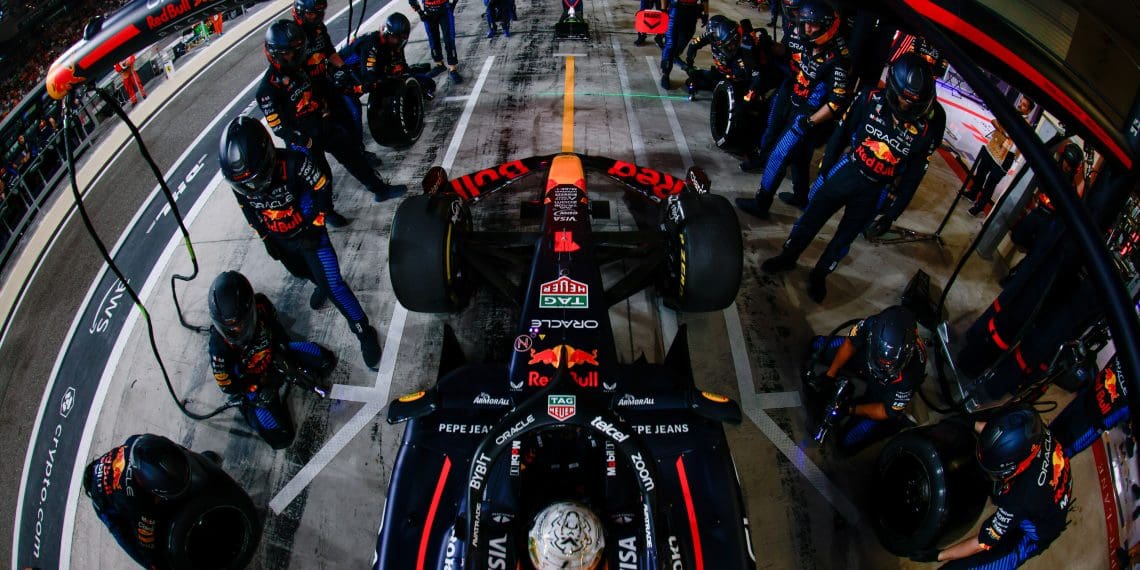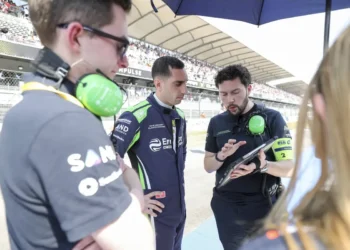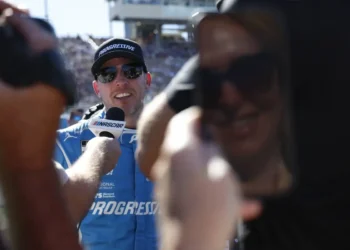For years, Honda and Red Bull were a dominant force in Formula 1, delivering multiple championships with Max Verstappen. But despite their on-track success, their partnership was never built to last.
As F1 moves toward radical new engine regulations in 2026, Honda has made a bold move—ditching Red Bull entirely to align with Aston Martin.
According to Honda Racing Corporation President Koji Watanabe, there was simply “no room to work together” with Red Bull Powertrains.
So, what went wrong? And can Honda’s gamble with Aston Martin pay off?
Honda and Red Bull: A Breakup Years in the Making
Honda’s initial exit from Formula 1 in 2021 left Red Bull scrambling for an engine supplier. Instead of relying on a third party, Red Bull Powertrains was born, setting up an independent operation to build its own F1 power unit.
At first, Honda continued to offer technical support—a quiet but critical lifeline that kept Red Bull at the top.
However, Red Bull had no intention of being dependent on Honda forever.
- The team pursued talks with Porsche, but negotiations collapsed after the German marque demanded too much control.
- Eventually, Red Bull partnered with Ford, creating a clear divide between their ambitions and Honda’s plans.
Why Honda Walked Away: The Red Bull Power Struggle
Despite their historic success together, Honda and Red Bull had fundamental disagreements over their roles.
Watanabe revealed that Red Bull proposed a split development model—Red Bull handling the internal combustion engine (ICE), while Honda managed the electrical components.
But for Honda, that idea simply didn’t make sense.
“During our regular conversations, we discussed the option of Red Bull doing the ICE themselves and us doing the electrical parts,” Watanabe explained. “But that wouldn’t have been easy at all… we found out that it was impossible to collaborate under these conditions.”
In other words, Honda wanted full control over its power unit program—something it could never have with Red Bull.
Enter Aston Martin: Honda’s All-In Move for 2026
With Red Bull going in a different direction, Honda needed a new project—and Aston Martin was the perfect fit.
- Aston Martin needed a works engine partner to compete with Red Bull, Mercedes, and Ferrari.
- Honda wanted a full-scale F1 comeback, not just a support role.
It was a match made in racing heaven.
Honda officially announced its partnership with Aston Martin in 2023, signaling a new era for both brands.
According to Watanabe, the 2026 F1 regulations were a key factor in Honda’s return.
“The new F1 regulations for 2026, with the combustion engine being 50% and the electrical parts being 50%, are very attractive to both Honda and Honda Racing,” he explained.
With sustainable fuels and an increased focus on hybrid technology, Honda saw a perfect opportunity to align its F1 and automotive goals.
The Challenge Ahead: Can Honda and Aston Martin Win Together?
While Honda has a history of success, developing an entirely new power unit for Aston Martin is a massive undertaking.
Watanabe admitted that the process has been extremely difficult.
“Everything is new. The motor is a new 355-kW, very compact one we need,” he said. “Also, the lightweight battery, it’s not so easy to develop. And also the small engine with the big power. Everything is very difficult, but we try our best.”
But if Honda gets it right, Aston Martin could go from podium contender to title challenger.
And with Fernando Alonso and possibly even Max Verstappen linked to a future Aston Martin seat, the project has all the ingredients to shake up F1’s pecking order.
Final Thoughts: Did Honda Make the Right Call?
Walking away from Red Bull was a bold move, but Honda clearly believes that Aston Martin offers a better long-term future.
Now, the question is simple:
Can Honda build a winning engine from scratch?
If they succeed, Aston Martin could be fighting for championships by 2026.
If they fail, they risk another painful F1 exit.
Either way, one thing is certain—Honda is no longer just a “supporting player” in Formula 1.
They’re back to prove they can win it all—on their own terms.










